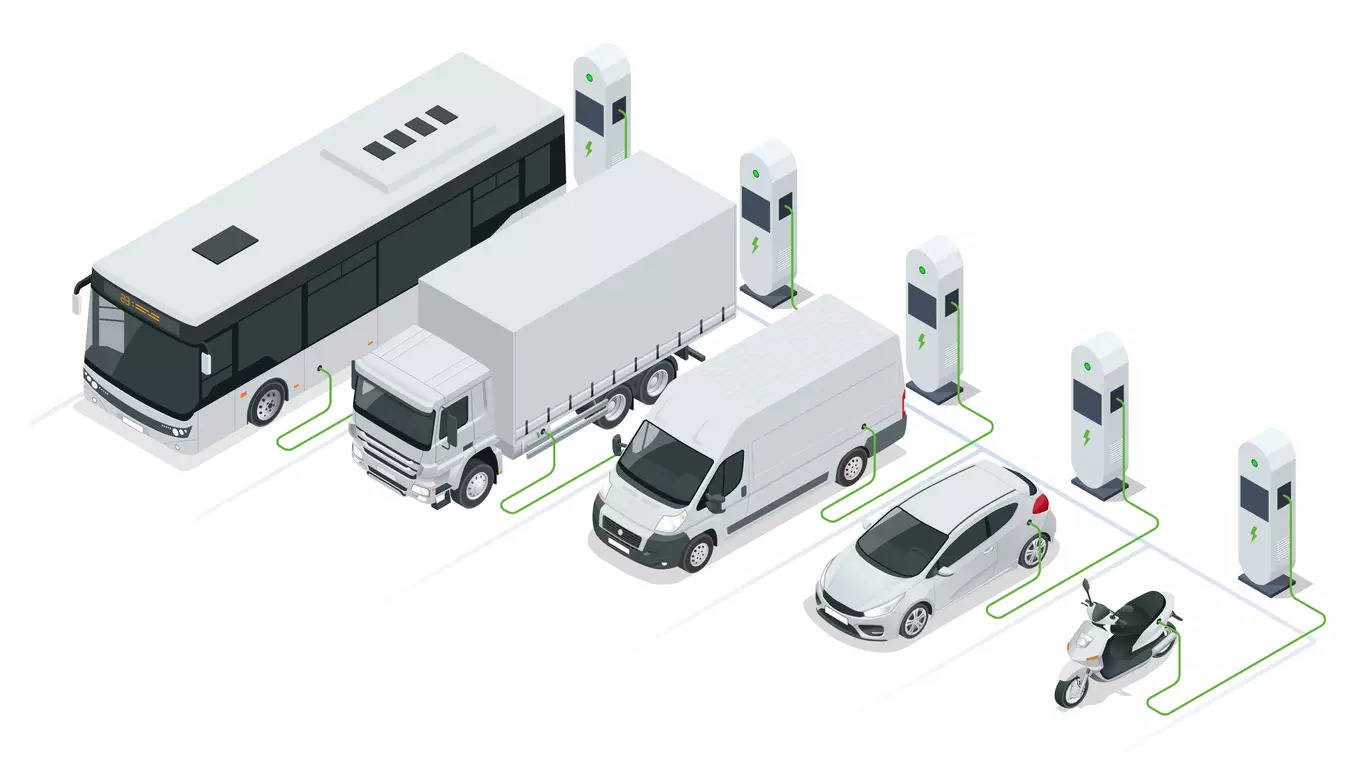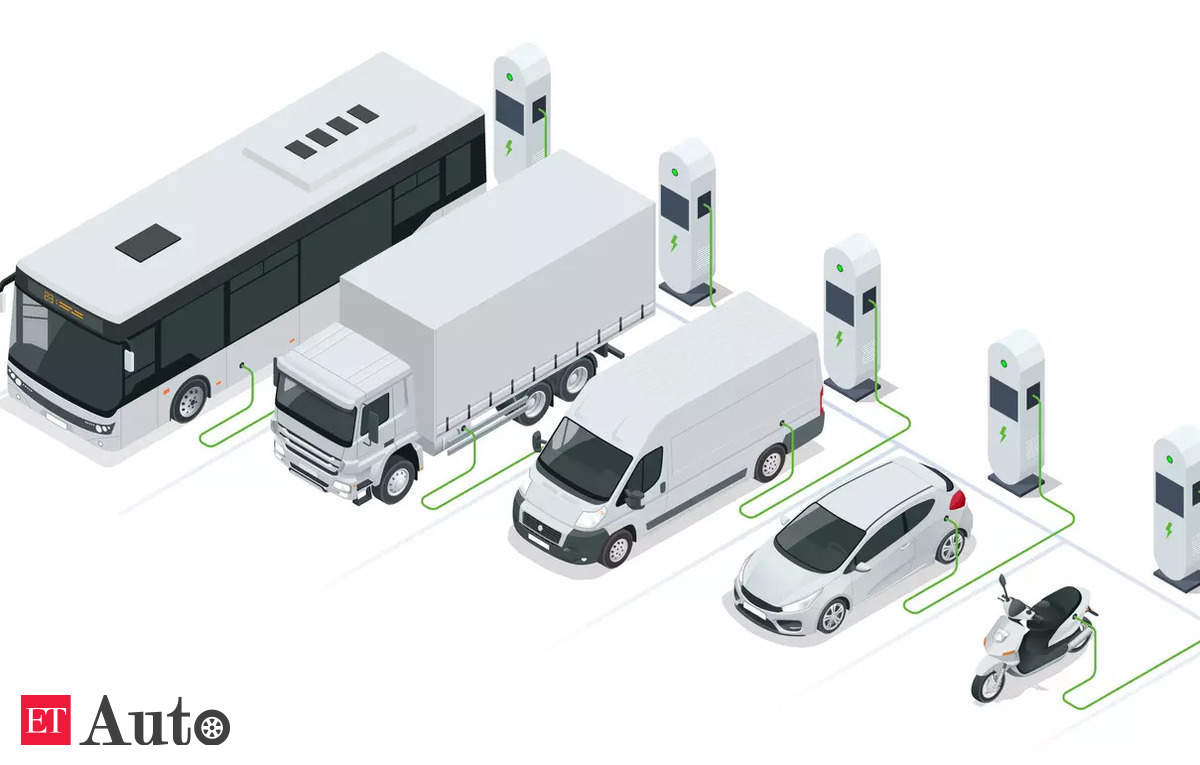
New Delhi: International Centre for Entrepreneurship and Technology (iCreate), is a leading innovation-based startup incubator in India started in 2012. It is supported by the state and central governments to facilitate ‘Next Generation Entrepreneurship.’
iCreate hosted a 5-day Bootcamp of India’s largest EV innovation challenge, EVangelise ’23, at its campus near Ahmedabad, Gujarat, from November 3 to 7. The bootcamp showcased solutions to real world challenges faced by the EV industry in India by the top 40 innovators from more than 2700 entries.
This year’s EVangelise introduced funding opportunities, apart from cash prizes and incubation support. EVangelise ’23 invited innovations from across various stages of development under three key EV technology themes – the Traction, Energy & Telematics, Intelligence and Connectivity (TIC). The winners will receive a total cash prize of INR 56 lakh.
In an interaction with ETAuto, Avinash Punekar, CEO of iCreate, shared significant insights about the evolution of the EVangelise program and the broader electric vehicle (EV) ecosystem in India. He explained how EVangelise has grown significantly over the years.
Punekar emphasized that the first two iterations of EVangelise primarily focused on electric cycles, two-wheelers, and three-wheelers, along with components, subcomponents, and sub-assemblies. These initial stages aimed to address the lack of a robust EV ecosystem in India, where a large proportion of components were imported.
Notably, iCreate played a pivotal role in nurturing startups and helping them develop indigenized components and technologies. In a remarkably short period, startups in the program successfully indigenized over 85% of components, contributing significantly to the ‘Make in India’ and ‘Atmanirbhar Bharat‘ (self-reliant India) initiatives.
Punekar said, “The EVangelise grand challenge has now become the largest EV grand challenge, and I can probably say that across the world, there is no other similar challenge or event.”
The grand challenge has grown from just 500 applicants during its first iteration to over 2,700 applications in its latest installment. This remarkable increase underscores the rapid growth of the EV ecosystem in India and the maturation of startups. Out of the 31 startups mentored, 28 successfully completed their product development, and 14 have already commercialized their offerings.
The startups’ journey from concept to commercialization, occurring within a span of two to two and a half years, was hailed as a phenomenal achievement. These emerging companies not only demonstrated their ability to indigenize components but also produce products that are competitive with global offerings in terms of quality and pricing.
Punekar explained that this success paves the way for Indian startups and micro, small and medium-sized enterprises (MSMEs) to conquer international markets. The strategy of focusing on mastering components, sub-components, and technologies is set to become a model for other centers of excellence and similar initiatives in India.
The conversation then delved into the expanded scope of EVangelise ’23. This year, the program partnered with TEXMiN, a technology innovation hub at IIT Dhanbad, to explore the electrification of heavy-duty equipment used in the mining industry. By extending its focus to equipment used in demanding environments such as mining, EVangelise aims to cover the entire spectrum of electric mobility, from cycles and two-wheelers to heavy-duty vehicles like trucks and off-highway vehicles.
In addition to the core program, iCreate has launched two crucial initiatives: the Indigenous EV Component (IEVC) platform and the System on Chip (SoC 42). The IEVC platform is designed to provide visibility for product technologies developed by startups and MSMEs. “This platform, akin to a mini Alibaba or Aliexpress, will help Indian OEMs discover and integrate indigenous EV components into their products, thus promoting local innovation,” Punekar said.
SoC 42, a versatile chipset platform, is not limited to two and three-wheelers but has a broad scope of applications. It can be utilized in various vehicles, medical devices, and consumer electronics. Being open-source and made in India, SoC 42 has the potential to become the de facto platform for both domestic and global players in the future.
To further promote SoC 42, EVangelise ’23 includes a challenge encouraging innovators and researchers to develop applications based on this platform, envisioning it as the future of EVs and electronic products manufactured in India.
The conversation touched upon the progress of SoC 42, with the first version already in its final stage. The platform is expected to go through iterations over the next one or two years to achieve maturity and stability.
Regarding investments, the startups that have matured and completed their products are now attracting investors. An exclusive track for investors and financial institutions has been introduced in EVangelise ’23 to facilitate interactions between startups and potential investors. Some startups have even received acquisition offers during initial meetings, showcasing the value they bring to the market.
iCreate has played a crucial role in the startups’ journey, not only supporting product development but also assisting with marketing, industry connections, and market outreach. Additionally, iCreate is in the process of setting up the iCreate Angel Fund, a 100 crore fund to bridge the financial gap for startups that have utilized their seed capital but require further support to gain market traction.
In conclusion, the interaction with Avinash Punekar shed light on the growth of the EVangelise program, the impressive achievements of startups in the Indian EV ecosystem, and the forward-looking initiatives that aim to make India a global hub for electric mobility and innovation. This evolving landscape presents exciting opportunities for startups, investors, and the broader industry, furthering the vision of ‘Make in India’ and ‘Atmanirbhar Bharat.’









